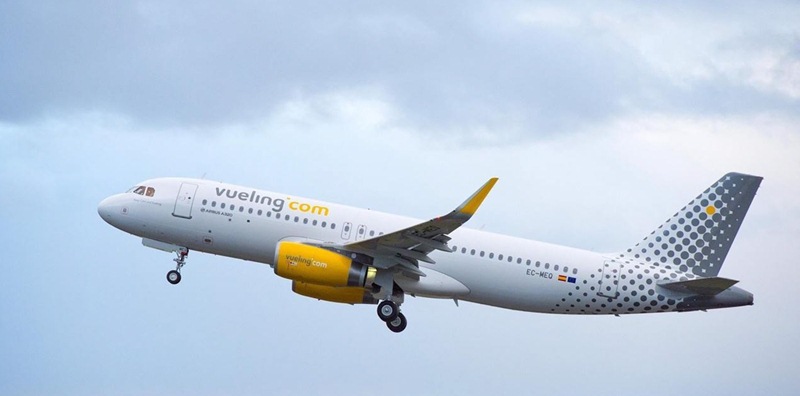The Vueling airline has presented Wednesday its first branch in the Canary Islands, to be installed in Tenerife, after being approved by the Consortium of the Canary Islands Special Zone (ZEC), as it will increase connectivity by 20% and increase the workforce which will increase from 81 to 117 in 2017, mainly crew plus two people in the commercial and financially.
The details have been exposed at a press conference by the Director of Strategy and Alliances Vueling, Fernando Estrada, the President of the Canary Islands, Fernando Clavijo, and the president of the ZEC, Beatriz Barrera.
The new branch is mainly responsible for coordinating the commercial and operational structure in the Canaries, with an administrative and financial team, and Estrada has stressed that this formula is the “best way” to channel the growth of the company in the islands, which is a “strategic market”.
It has also used the meeting with the media to also advance the new operational base to be installed in Tenerife, with an Airbus A320 with a capacity for 180 passengers, and is the third airline after Tenerife North and Gran Canaria.
For this summer season, Estrada commented that in the Canary Islands Vueling offers a total of 43 routes and almost 1.4 million seats, and opens four new routes in Tenerife South (Birmingham UK, Manchester UK, Rome and Zurich); three Gran Canaria (Amsterdam, Milan and Zurich); three Lanzarote (Rome, Santiago de Compostela and Zurich) and between Fuerteventura and Rome.
To meet this new market demand, Vueling will incorporate the Airbus A321, the largest aircraft company with 220 seats, to the bases of Gran Canaria and Tenerife Norte.
Estrada has said that Vueling “is not a low cost to use,” since among other things, has two ‘hub’ in Barcelona and Rome that allow them to capture traffic across Europe, while it has stressed the “firm commitment” the archipelago, a market growing steadily since 2008.
It will be a “CALL EFFECT”
Barrera, meanwhile, defended the “economic and legal” security that the new fiscal REF to attract large multinationals to the islands, and has said it is a “powerful tool” to convert Canary in a business platform.
In his view, the arrival of Vueling to the Canary Islands will be a “pull factor” to attract other companies because it will be a “success story” that will allow the implementation of other companies and thus get more flights, lower prices and job creation.
Clavijo, however, said that the arrival of Vueling to Canarias “is one of the most important economic news” of the year, has recognized that the airline has won the trust “gradually” since it began operating in the archipelago in 2008.
“Canarias is still attractive as an investment and Vueling will not regret going to be a safe bet,” he explained.



